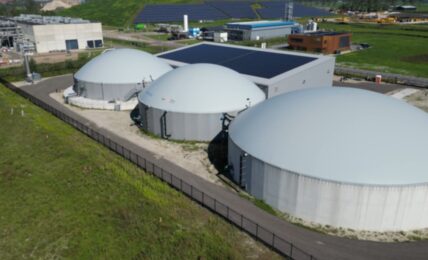The IFRS Foundation unveiled significant progress towards the establishment of a consistent global baseline for a corporate sustainability reporting system, revealing today that jurisdictions representing more than half of the global economy have announced steps to use or align with the International Sustainability Standards Board’s (ISSB) disclosure standards.
The IFRS Foundation’s International Sustainability Standards Board (ISSB) was launched in November 2021 at the COP26 climate conference, with the goal to develop IFRS Sustainability Disclosure Standards to provide investors with information about companies’ sustainability risks and opportunities. The IFRS released the inaugural general sustainability (IFRS S1) and climate (IFRS S2) reporting standards in June 2023.
Following the release of the standards last year, IOSCO, the leading international policy forum and standards setter for securities regulators called on regulators to incorporate the standards into their sustainability reporting regulatory frameworks.
Announcing the progress today at the IOSCO Annual Meeting, the IFRS Foundation reported that to date, more than 20 jurisdictions have decided to use the ISSB standards, or are taking steps to introduce the standards in their own frameworks, with the jurisdictions representing nearly 55% of global GDP, more than 40% of global market capitalization, and over half of global greenhouse gas emissions.
Most recently, China’s Ministry of Finance announced earlier this week issued proposed sustainability reporting standards for businesses, based primarily on the ISSB standards.
Notably, the IFRS noted that the U.S. Securities and Exchange Commission (SEC) has acknowledged similarities between the ISSB standards and its recently released climate disclosure rules, but that the commission has so far declined to recognize the ISSB Standards for use as an alternative to the new rules.
IOSCO Chair Jean-Paul Servais said:
“Today marks an important milestone in IOSCO’s objective to establish a global framework for comparable reliable sustainability disclosures for the capital markets. I am encouraged by the fact that not even a year after our endorsement and call to action, so many jurisdictions are seeking to adopt or be informed by the ISSB Standards.”
Alongside the update, the IFRS announced the launch of the “Inaugural Jurisdictional Guide for the adoption or other use of ISSB Standards,” a new guide aimed to help jurisdictions design and plan their journey towards the use of the ISSB standards, including descriptions of various approaches to adoption, including full adoption, partial adoption and permission to use.
IFRS Foundation Trustees Chair Erkki Liikanen said:
“The introduction of the Standards into regulatory frameworks will—for the first time—enable capital markets to assess and price climate and other sustainability-related risks and opportunities appropriately.”
ISSB Chair Emmanuel Faber added:
“From major economies to emerging markets, jurisdictions around the world such as Brazil, Costa Rica, Japan, Nigeria and the UK are recognising the value of the ISSB Standards. Supporting completion of their regulatory processes, as well as the engagement with other jurisdictions around the world, is our priority in the near future in creating the global baseline of proportionate, high-quality sustainability-related financial disclosures.”



